


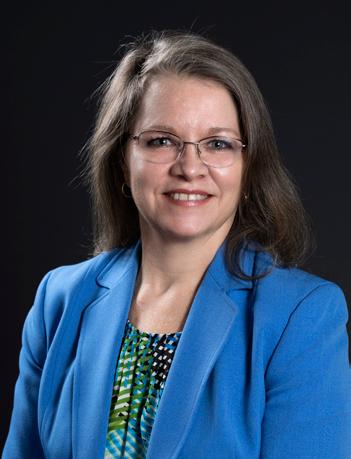





Bea Rector Assistant Secretary
ALTSA Teammates-
Welcome to 2025! Every New Year, and every new day for that matter, brings with it limitless opportunities for growth and positive impact. One key to maximizing these opportunities is ensuring each of us practice our DSHS value of communicating with clarity and choices. Essential to this value is our ability as individuals and as an organization to prioritize our skills and processes for giving and receiving feedback. It is only through the process of giving and receiving of feedback that we may successfully operate in true collaboration with each other, those we serve and our community partners. It is also essential for our personal and professional growth and in creating a work environment where open, honest and respectful dialogue can occur.
Building Our Skills: Giving and receiving feedback can feel scary and create feelings of anxiety which may cause us to avoid or put off crucial conversations. My vision is we practice shifting our thinking about giving and receiving feedback away from feeling scared and nudge ourselves toward feeling curious, comfortable, confident, and competent in these skills. This happens when we invest time in ourselves to learn and practice and when we create an environment where we are open, clear, courageous while also being respectful and we are non-judgmental in how we communicate. Please watch for and prioritize opportunities this year to grow your skills in this area and have grace with others doing the same.
Feedback Processes: We have many formal and informal processes for giving and receiving feedback across ALTSA ranging from 1:1s, performance reviews, team meetings, focus groups, lean process improvement and human-centered design workshops, community forums, service experience teams, our meet and greets with staff, and client and staff surveys, just to name a few. The important takeaway here is giving and receiving feedback is essential at every level of the organization in building relationships and trust.
Thank you for ensuring ALTSA is an organization that prioritizes and uses the giving and receiving of feedback to grow at the individual, team and organizational level. Our collective focus on these skills and processes will help us better achieve our mission to partner with people to access support, care, and resources in very real and meaningful ways.

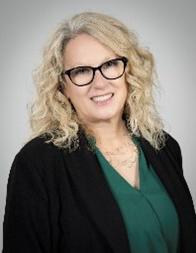
Kathy Morgan Director
As winter sets in, it is crucial to recognize the challenges faced by at-risk individuals, including older adults, people with disabilities, and those with limited support or resources. Understanding these difficulties allows us to work together as a community to keep everyone warm, safe, and healthy.
For many Washington residents, winter means higher heating bills, straining family budgets, especially for those already struggling to make ends meet.
Older adults, individuals with mobility-related disabilities, or those relying on caregivers may find everyday tasks like grocery shopping, picking up prescriptions, or attending medical appointments challenging due to icy roads and winter storms. People without stable housing face the greatest risks, including frostbite, illness, and other injuries. Individuals experiencing memory loss or cognitive issues might forget to dress warmly or wander outside without appropriate clothing.
As caring neighbors and public servants, we can support those in need by connecting them with resources. Check in more often with vulnerable individuals and help them access communitybased support. Local nonprofits and faith organizations often provide weatherization services, meal deliveries, clothing, and friendly visits. Encourage people to seek energy bill assistance or community meal programs to alleviate financial and emotional burdens. Keep an eye out for neighbors who may be struggling.
As caring neighbors and public servants, we can support those in need by connecting them with resources.
Offering a ride to the store, shoveling a walkway, or sharing information about local food banks and emergency shelters can make a significant difference. Small actions add up, helping vulnerable individuals feel supported and less isolated.
Pay attention to signs that someone might need help, such as staying indoors in a chilly home, wearing thin clothing outside, or missing appointments. If you notice these signs, share information about local resources like the 211 information line, which connects individuals to a wide range of community services. Directing people to these resources can provide immediate relief and long-term support.
By staying alert, working together, and spreading awareness about available help, we can protect our state’s most vulnerable people. Winter can still be a season of comfort and connection if everyone has the chance to remain warm, secure, and cared for. Let’s ensure no one is left out in the cold this winter.

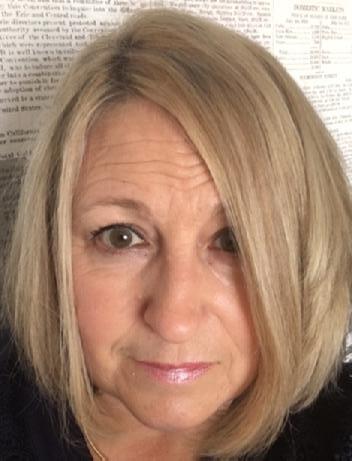
Cathy Kinnaman Director
As we step into 2025, HCS leadership would like to take an opportunity to reflect on the remarkable strides made across the division in 2024. The past year was one of transformation, collaboration, and innovation, driven by our unwavering commitment to improving the lives of the individuals and families we serve.
One of our standout achievements was navigating the challenges of the post-Public Health Emergency landscape. The Financial Eligibility and Policy Office successfully completed the PHE unwind renewals, ensuring uninterrupted service for our clients during a critical transition period. Simultaneously, the full implementation of VSP underscored our dedication to efficient and equitable service delivery.
The Office of Housing and Employment made significant progress in creating person-centered housing solutions, launching initiatives such as the Motel Interim Stays for Transitions, Global Leasing, and GOSH Diversion referrals. These programs, alongside leveraging resources like MFP short-term rent subsidies, advanced equity and accessibility in housing. Additionally, the ALTSA Bridge Subsidy reached full utilization, thanks to an enhanced fiscal tracking structure.
In partnership with stakeholders and communities, the State Unit on Aging advanced several initiatives. Notably, the Kinship Navigator Pilot received a “Supported” rating from the Clearing House, setting the stage for federal match funding in 2025. Other achievements included revising and submitting the State Plan on Alzheimer’s Disease to the legislature and requesting Age-Friendly and Dementia-Friendly State designations from the Governor’s office, reaffirming our commitment to fostering inclusive and supportive environments for all.
The Training, Communications, and Workforce Development Office expanded its reach and impact by supporting more than twice the number of CareLearn users compared to the previous year. Meanwhile, completion of the Caregiver Exit/Stay Survey provided invaluable insights.
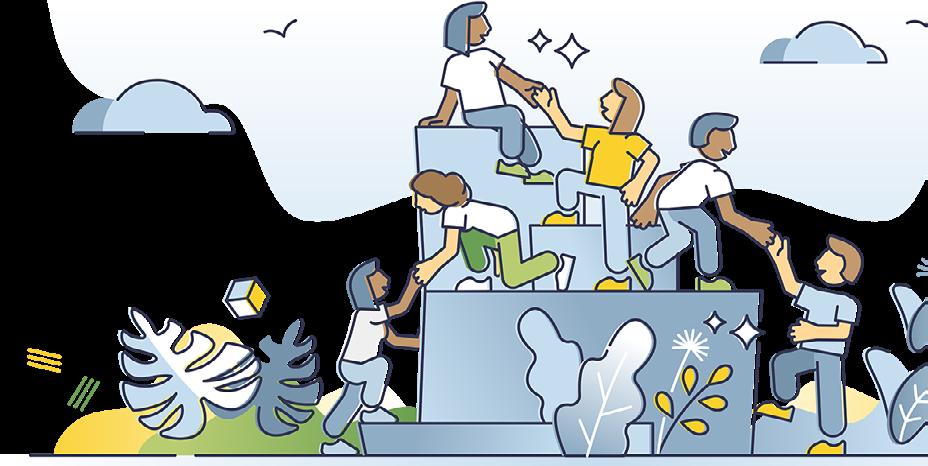
In 2024, we also expanded client options through the renewal and geographic expansion of the New Freedom waiver and implemented personal care support under MTP MAC/TSOA, giving families more flexibility to choose care providers. Meanwhile, the Wellness, Improvement, and Nursing Office leveraged AI technology to enhance documentation processes, developed targeted training programs for nursing services, and updated critical resources, including websites and LTC Manual chapters.
Across our regions, the dedication to excellence was palpable and accomplishments were plenty. In Region 1, initiatives such as the Complex Transition Pilot and Phase 1 of the Presumptive Eligibility Program helped streamline transitions for individuals with complex needs. Region 1 is also leading the state in HCS Presumptive Eligibility (PE) Phase 2 testing, which will help inform the future for statewide expansion of PE. Region 2 helped to pioneer programs like the Complex Discharge Pilot, reducing acute care hospital stays and assisting thousands of discharges. Their Public Benefit Specialists began taking voice signatures and are leading the state in expediting client services using this technology. Region 3’s focus on data-driven tools improved project management and service delivery, exemplified by the development of several dashboards and a record-breaking reduction in position vacancy rates. In addition, all staff in all three regions contributed to assisting thousands of people in need of long-term services and supports! As we carry this momentum, we remain inspired by the dedication of our teams and the resilience of those we serve. Your director, deputy directors, and office chiefs thank you for your hard work and perseverance. Together, we will continue building a future where every individual has the opportunity to thrive with dignity and support.

Eric Mandt Director
As many of you know, MSD is continuing to prepare to transition ALTSA’S financial accounting systems to OneWA.
This process has been in the works for a long time and based on a recent appraisal of the progress will continue for a while still.
In November 2024, OneWA conducted a “Phase 1A” go-live readiness assessment to determine a precise date to begin services, or “go live.”
Based on the findings, OneWA recommended adjusting the go-live timeline by at least one year.
The assessment revealed that more analysis is needed to determine a precise go-live date. As a result, we are moving forward with an anticipated go-live date between July 2026 and January 2027.
DSHS has a lot of work to perform between now and go-live. We will continue as planned, and will take the opportunity to perform a more in-depth review at a later date.
The implementation of OneWA will update not only our systems but also review and modernize our policies and processes as well.
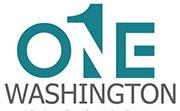

The OneWA project is extremely complex and spans multiple phases and years of planning and tasks.
Among the challenges: transferring billions of dollars in budget data for more than 100 state agencies. This data feeds the state’s financial statements, which are essential for maintaining the state’s transparency, accountability and fiscal stability.
I hope you all enjoyed your winter holidays and spent some time with loved ones. Take care as we enter legislative session.
Washington state is modernizing its core administrative systems to address the inefficiencies of old technology, the inherent and compounding risks of aging systems, and to improve the ability to deliver services in an on-demand world.
Washington state’s current financial accounting systems (such as AFRS and TRAINS) are obsolete, expensive to maintain, are supported by a shrinking pool of resources, and expose the state to risks.
Procurement systems are fragmented and not integrated, causing extra work and hindering the state’s ability to take advantage of best practices and negotiate best possible pricing. Likewise, budgeting systems are not well integrated, compromising the ability to analyze data and information. The HR/payroll system (HRMS) will soon be 15 years old.
The solution being developed to replace these systems is called One Washington, or OneWA.

Earnest Covington, III Director
Office of the Deaf and Hard of Hearing has been coordinating the launch of the Signed, ProTactile, and Trilingual Interpreter Shortage workgroup since the passage of HB 2221, which is dedicated to finding solutions for the shortage of qualified and certified American Sign Language and Protactile interpreters in the state of Washington.
The work group is working towards outcomes such that:
• Deaf, DeafBlind, and Hard of Hearing residents who use ASL and Protactile have access to qualified and certified interpreters whenever needed, and have access to interpreters that match their cultural and linguistic preferences, especially those residents from historically marginalized populations;
• ASL and Protactile interpreters in the state meet a satisfactory standard of quality interpreting, to ensure equitable access to communication from all interpreters;
• At least one high quality postsecondary interpreter training program is established that is accredited and prepares interpreters to meet the standards of the Registry of Interpreters for the Deaf;
• ASL and Protactile interpreters have access to more employment and continuing education opportunities and equitable wages, and are incentivized to live and work in the state;
• Postsecondary students in the state are incentivized to join interpreter training programs; and
• Barriers are eliminated that prevent deaf, deafblind, and hard of hearing residents from using and accessing interpreters when they desire.
The newly hired Program Coordinator, Cory Levin, is on board with the team to launch the project.
The next few months will consist of engaging the work group members with solutions before a legislative report is submitted in March 2025.
We are in the process of interviewing candidates for the Sign Language Access Manager. This position will enable ODHH to be able to utilize interpreting services for ODHH businesses effectively.


Cory Levin is a dynamic Southern California native with a rich blend of academic, professional, and personal pursuits. After earning an Associate Degree from Mount San Antonio College in Diamond Bar, CA, Cory moved to Salt Lake City, UT, where he completed a Bachelor’s Degree in Political Science.
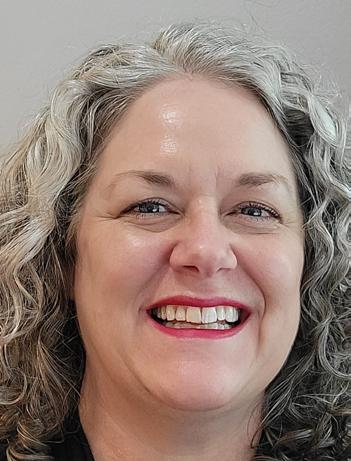
Amy Abbott Director
Of the leading reasons for admission to a skilled nursing facility, conditions caused by a fall (fracture, head injury, infection post-surgical repair) rank near the top.
Residents admitted to a nursing facility after a fall face a strenuous recovery with no guarantee they ever will achieve their pre-fall level of physical function.
More than 14 million adults 65 and older - or 1 in 4report falling every year, according to data from the Centers for Disease Control and Prevention.
Those tumbles result in roughly nine million injuries, three million emergency department visits, and one million hospitalizations annually.
And falls account for a significant number of injuries in longterm care settings.
Falls can be fatal: They are the leading cause of injury related death among adults ages 65 and older. In 2023 alone 40,000 older adults died from falls.
More than 14 million adults 65 and older - or 1 in 4report falling every year.
Now, in a move to address this issue of falls and the serious consequences, Senator Angus King (I-Maine) and Mike Rounds (R- S.D.) have introduced into this federal legislative session the Stand Strong Falls Prevention Act, a bill to amend the Older Americans Act of 1965. This Act would enhance preventative care and reduce fall related incidents.
Key components of this legislation would include:
• Preventative Home Visits Act: This act focuses on expanding Medicare benefits to cover home modifications. By making home environments safer and more accessible, it aims to prevent falls and their associated injuries.
• WELL Seniors Act: The WELL Seniors Act ensures the accessibility of telehealth services, which can be vital for older adults, particularly those living in remote or under served areas. It also incorporates comprehensive screenings during Medicare Annual Wellness Visits to identify potential fall risks.
The legislation would also establish a national falls prevention advisory committee made up of representatives from federal and state government agencies, healthcare providers, researchers, caregivers, housing assistance experts, disability service providers and more.
This legislation is a critical step toward fall prevention and the associated consequences.
Working to reduce falls among older adults and making fall prevention a national priority will help to reduce hospitalizations and long-term care stays, allow older adults to maintain a higher level of physical well-being and mobility, and improve their quality of life.
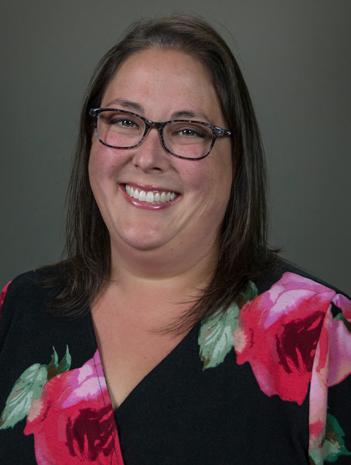
Serena Segura Emergency Manager and Risk Officer
In 2025, the ALTSA Update articles for emergency management will focus on personal preparedness and how to prepare in a year. This will help all of us be resilient during emergencies and disasters. Emergencies and disasters can be small like a power outage, large like an earthquake, or any size in between, such as: floods, volcanic eruptions, and man-made incidents to name a few.
Over the years there have been several slogans for personal preparedness:
• 3 days 3 ways
• 2-weeks ready
• 90 days of readiness
• Prepare in a Year
Preparing for an emergency can feel very daunting and full of gloom and doom. By breaking down the pieces to personal preparedness and taking it stepby-step, it will feel more attainable and manageable. Personal preparedness is just that – personal. Having a plan, an emergency kit with supplies that fit you and your family, staying informed about potential hazards in your area, and practicing what to do will help us prepare for any kind of emergency that may occur. Being prepared has many benefits. It reduces stress, ensures safety, and provides processes for communication.
There are lots of great resources available for personal preparedness. This year, FEMA through the ready.gov website, is emphasizing
“Resolve to be Ready.” There are lots of helpful suggestions on activities to complete to be better prepared.
Resource Links:
• Emergency Management Division –Preparedness: https://mil.wa.gov/personal
• Emergency Management Division – Prepare in a Year Guide: https://mil.wa.gov/ asset/5f171cc0a935f
• Washington State Department of Health –Get Ready for an Emergency: https://doh. wa.gov/emergencies/be-prepared-besafe/get-ready
• Ready.gov – 2025 Preparedness Calendar: https://www.ready.gov/sites/default/ files/2024-12/ready-gov_2025preparedness-calendar.pdf

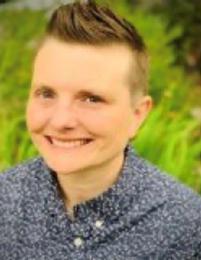
Jamie Wiggins EDAI Administrator
Our team is looking forward to offering some new or updated options for participation and engagement in the coming year. Here are some options you can look forward to seeing soon from our team:
• Connection Café: An opportunity to drop in and connect with other ALTSA employees on a variety of topics using an Equity, Diversity, Access, Inclusion, and Belonging (EDAI-B) lens. These are 80-minute sessions offered four times a year and often have a topic that is relevant to the current times.
• Focal Points: A focused effort to spend time together as One ALTSA to discuss EDAI related topics. These are offered four times a year and are one-hour sessions. Topics vary based on need and feedback (i.e. connecting our individual values with DSHS values, how do we see ourselves in the mission of ALTSA, and more).
• Bridge Building: An opportunity for a deeper dive into EDAI related topics, these sessions are a great option to take after taking Cultural Community Onboarding. These sessions are offered on the 3rd Thursday of every other month, starting in February of 2025.
As we set our intentions for the new year, we invite you to set yours as well.
• Conversation Starters: A monthly offering we share that is aimed to help promote shared understanding and an invitation to carve out time within your teams or huddles, or even as a guide for self-reflection.
• Cultural Community Onboarding: An introduction to ALTSA culture from the OEDAI team with an emphasis on our roles as part of a community committed to a culture of Belonging. These sessions are offered the 4th Thursday of every month, beginning in January 2025.
• Coming Soon OEDAI -ALTSA SharePoint site: An updated SharePoint site completely dedicated to ALTSA’s EDAI-B journey that will hold our archived Conversation Starters, additional resources, offerings for trainings and sessions and MUCH MORE!
As we set our intentions for the new year, we invite you to set yours as well. Find space on your calendars to participate in an EDAI offering, reach out to one of our PEAR team members to ask questions, or create space and commit to self-reflection in your own journey. We look forward to the next phase of this journey with you in this new year!

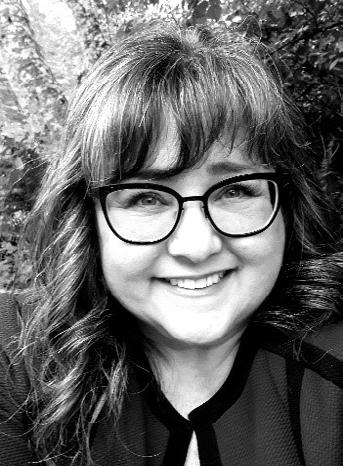

Amy Besel Senior Organizational Development Administrator
2025 is here and your ALTSA Organizational Development team is ALL IN for you and our mission to partner with people access to support, care and resources. Here are some things to share with you:
Watch for the results of the 2024 DSHS Employee Survey, which will be shared later this month. Action Plans will be revised and our relentless pursuit of “better” will keep going with your valued partnership. Be sure to explore our new Staff Development Opportunities SharePoint site created in response to the last employee survey.
Here is our handy, one-page January Org Dev roll-up containing links to all the resources and opportunities created for you.
We are excited to announce we are adding several new Focal Points this year. Focal Points were created in 2015 based on employee survey feedback to support your development and connection. New offerings include:
• The Psychology of Change
• Neurodiversity and Inclusion
• Building a Compelling Why
• Growth Mindset
• Introduction to A3s
• Creating SMART Goals
• The Roles of Change Leadership
• SharePoint Skills Building
• Resiliency in Uncertain Times
Our RAVE review site is updated to reflect our new values! Be sure to let our teammates know they are making a difference in big and small ways every day.
You have the power to impact someone else’s morale, connection and sense of belonging and will get a boost from it too!
Add the link to your favorites! Create a weekly RAVE Review calendar reminder so you remember to prioritize time to share the good stuff!
Thank you for your passion, dedication, and the unique skills, joy, and awesome sauce you bring to ALTSA every day. Thanks for growing with us in ALTSA.
Take a moment to explore the new DSHS Wellness Workshops and resources for you from DSHS in support of your wellbeing.
Please be sure to check out the latest ALTSA Wellness Note and explore the links! The ALTSA Wellness Note is created just for you each month with tips, resources, and support for your wellbeing. Here’s where you may find notes from past months.
Join Derrick Ross, ALTSA’s Engagement and Wellbeing Manager, at the next ALTSA Thrives Connection Café to grow your mindset, skills, and relationships in an inclusive, safe, and positive space. Bring a friend! You’ll be glad you did!
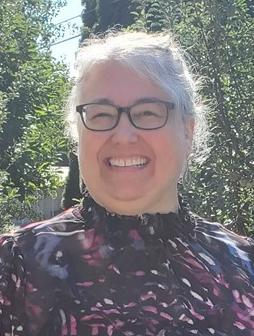
Mika Greathouse Project Management Office Administrator
The Project Management Office manages projects serving the full administration, supports multiple divisions and serves project managers and staff interested in managing projects.
Projects can be staff related (e.g. we assisted with several hiring projects in 2022, worked closely with DSHS on the Employer of Choice work and managed the new Duty Station Process rollout that was finalized in 2023).
However, our Office’s projects tend towards larger-scale work with long-term impact. A major focus right now is the successful implementation of the many components of the Centers for Medicare & Medicaid (CMS) Access Rule. Finalized in July 2023, with a six-year implementation window, the Access Rule goals are to increase transparency, standardize reporting, ensure beneficiary engagement and improve overall access to Home and Community Based Services.
The Access Rules include the creation of a new advisory body, a new grievance system and updates to our critical incident reporting system. Look for more updates on the CMS HCBS Access Rule in the coming months.
Supporting project staff across ALTSA is a high priority. We offer consultation and assistance, when capacity allows, on current projects and we are excited to expand support for you this year.
As a PMO Center of Excellence, we provide resources and guidance. We look forward to developing project standards for use across the administration. The PMO would like to invite you to join our newly created and thriving community of practice, “Practical Project Management,” which meets the third Tuesday of each month. The goal of the community of practice is to create a space for
those managing projects, working on projects or interested in growing their skills to come together and share. Sessions include informal trainings, best practices and project management tools and shared resources from your colleagues who have successfully worked on projects across DSHS and ALTSA. Please join us as we expand our skills and networks and grow together and support each other in the important work we all do.
Email Mika for the invite to our community!
Upcoming Community of Practice Topics:
January: Project Initiation –In’s and Out’s
February: Project Highlight March: Project Planning – Make the Time!
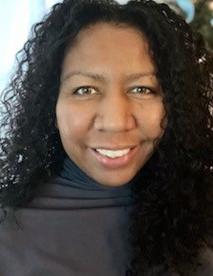
Tamara Gaston Tribal Affairs Administrator
As we start the new year, I want to recognize the Tribal Affairs team for their great work in 2024. Each of you had successes worth celebrating. In 2025, we’ll build on those wins and keep moving forward.
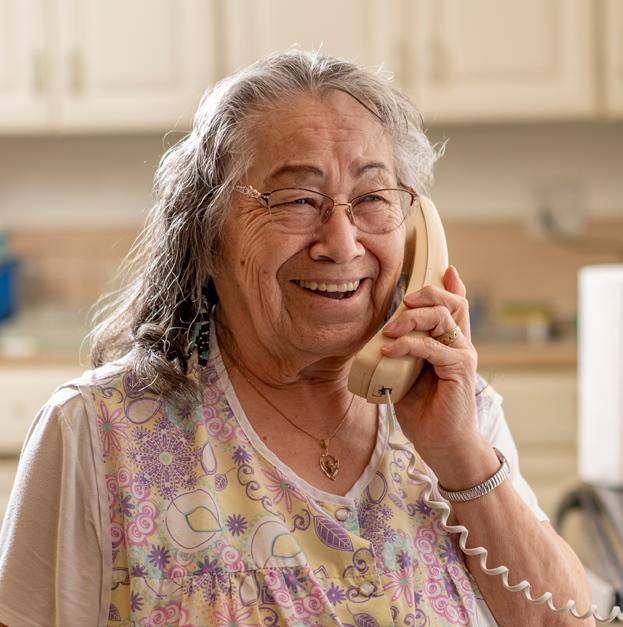
Money Follows the Person Tribal Initiative Program provides an infrastructure in addressing the gap disparity in access for tribes who may seek long -term care services. Through this grant, we have been able to secure four contracts to assist tribes in addressing their community needs. We have also contracted with two educators in providing culturally responsive trainings regarding dementia in Indian Country and understanding generational trauma while providing care to an elder.
The Tribal Health Homes Program is a care coordination program that provides six category types of services that aligns with traditional values in providing care to tribal members to meet their health needs as well as ensuring they can stay within the community. Tribal Affairs was able to secure five contracts with tribes who will be care coordination organizations for their communities.
This past year, various dear tribal leader letters and flyers were developed to communicate about LTC programs including HS Home Care Aide, Tribal Case Management (TCM) and MAC/TSOA. We had an average of scheduled meetings with 1-2 tribes weekly and through these meetings we were able to include subject matter experts to discuss programs, access to

services and residential care settings. We were able to provide a Tribal Summit in the summer and look forward to providing one in 2025.
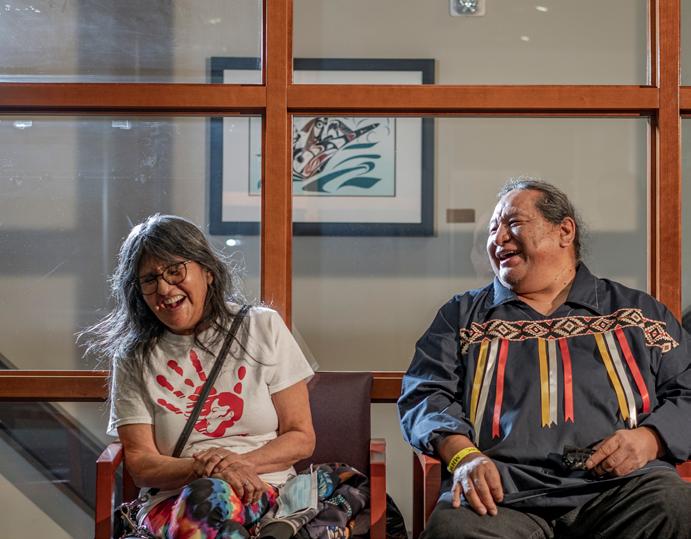
This past year, we worked in reaching out to other states inquiring about home & community-based facilities that provide LTC services to tribes and were aligned with traditional values and beliefs. We discovered there was no support for these types of facilities. With the support of leadership team and subject matter experts, tribal affairs were able to pursue a Tribal Care Facility as a home and community-based setting. We are awaiting a decision from Centers for Medicare & Medicaid Services, but we are hopeful that Washington state will set precedent in acknowledging a Tribal Care Facility as a home and community-based setting for Medicaid reimbursement.
The tribal affairs team participated in many workgroups this past year. We are humbled to be asked for feedback on several issues and policies.
As the tribal affairs administrator, it has been a pleasure working and providing guidance to each one of the tribal affairs team member. As a team, we worked together in bringing knowledge to tribes about ALTSA programs, accessing services and workforce development. As we bring in 2025, we will continue to promote contracts and support to the tribes as well as bring in new ideas and goals that align traditional long-term care with ALTSA’s long term care programs. We enjoy working and collaborating with our peers within ALTSA and will continue to share traditional knowledge within the organization.
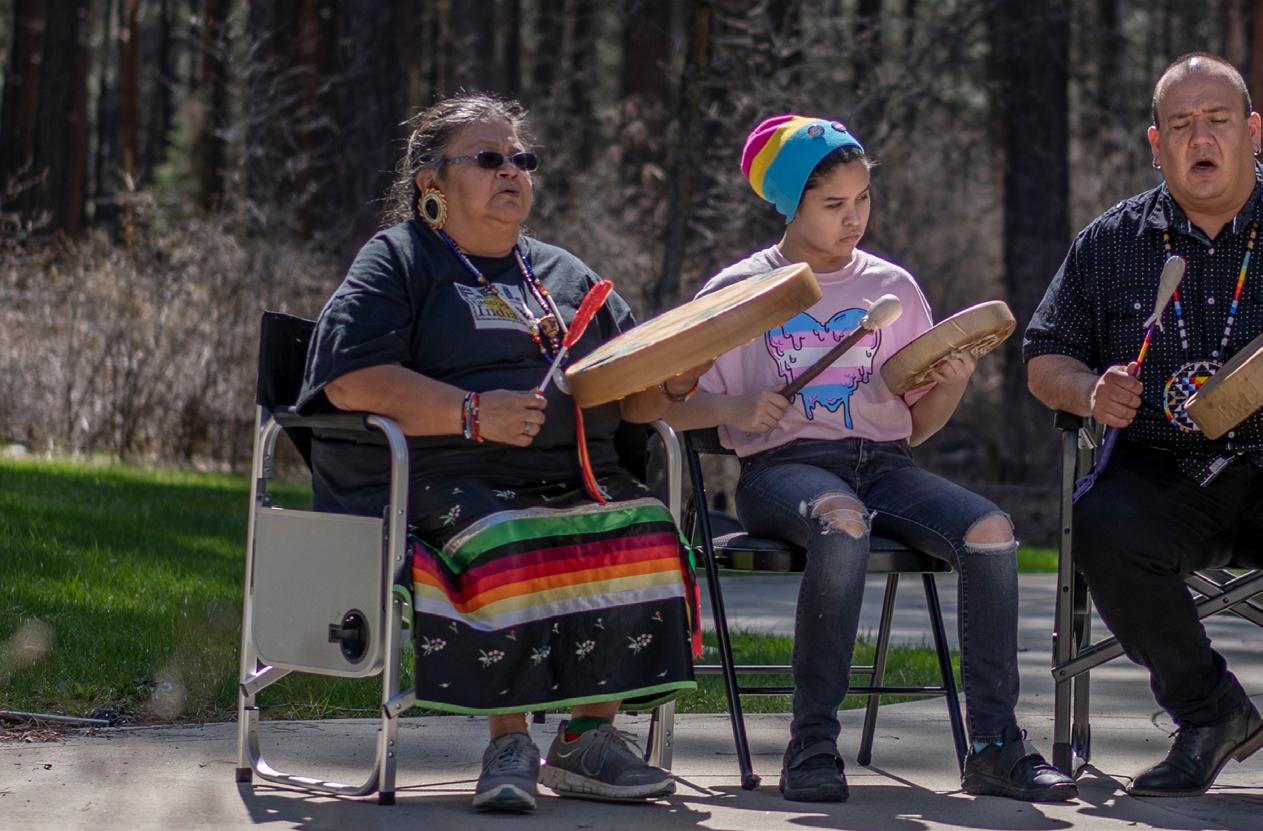

Ben Veghte Long-Term Care Trust Director
As we wrap up 2024, the WA Cares Fund has reached significant milestones in our mission to provide accessible long-term care support to Washington workers.
From portable benefits to enhanced community engagement, our achievements this year have laid a strong foundation for the future of long-term care in our state.
Starting July 2026, Washington workers can take their WA Cares benefit with them when they move out of state – a groundbreaking step forward in ensuring continuous coverage for our participants.



Through 11 webinars and 11 in-person presentations across Washington, we connected with over 4,000 community members, sharing vital information about long-term care planning and program benefits.
Looking ahead to 2025, we’re excited to build on these achievements with even more program resources and outreach for workers and employers.
Our achievements this year have laid a strong foundation for the future of long-term care in our state.
Washington voters did not pass Initiative 2124. Therefore, no changes were made to the law governing the WA Cares Fund and exemptions to the program.
This means more than 3 million Washington workers will continue earning affordable long-term care coverage and the solvency of the program will be protected.
We saw exceptional service provided by our customer care teams, who handled over 26,000 calls and emails throughout the year. Our digital presence also grew substantially, with our website reaching more than 500,000 visitors and offering resources in 13 languages.

WA Cares will provide an essential resource for Washington families who can’t afford the high costs of long-term care and family caregivers who are struggling without support.
Together, we’re building a stronger, more secure future for long-term care in Washington state.
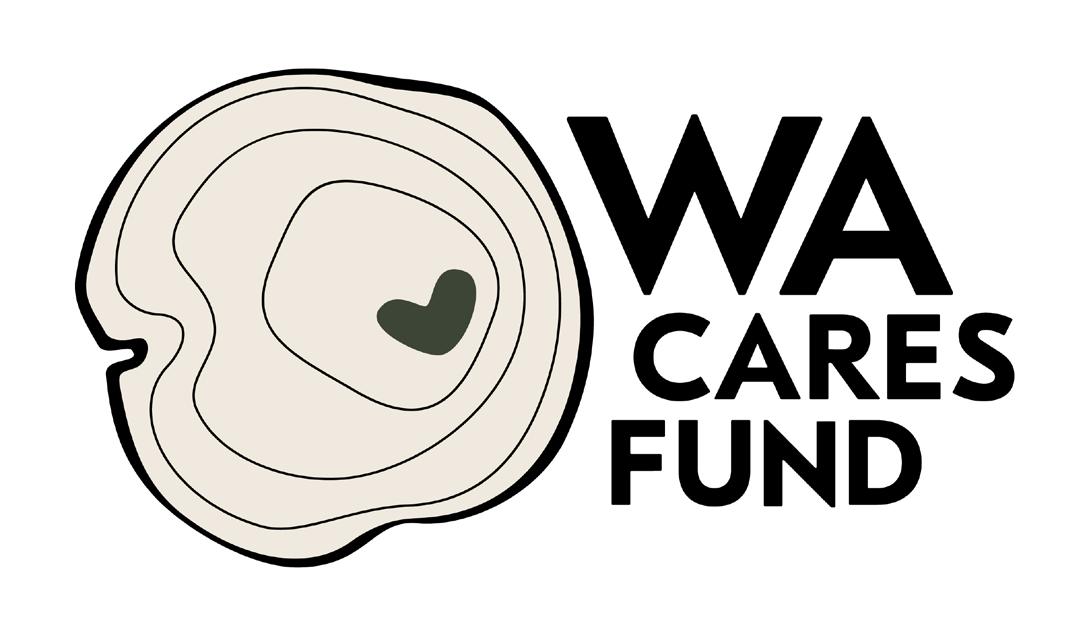
Watch our webinar recordings, follow us on Facebook, LinkedIn and Instagram or subscribe to our newsletter for the latest updates.

Memo: ALTSA Governor’s Budget Letter (December 18, 2024) Tap image to read for further details
DSHS ALTSA received funding for several key priorities, and funding needed to implement new federal rules finalized in 2024. Additional highlights of the proposed Governor’s budget:
State Agency Collective Bargaining Agreements. The Governor’s budget funds the collective bargaining agreements between the State and its employees, including SEIU 1199NW and the Washington Federation of State Employees. For more detail on those CBAs, visit OFM’s website.
Cares Operations and Implementation. The Governor’s budget provided $170 million from the Long-Term Services and Supports Trust account to support 323 FTEs to implement the WA Cares program as required by 50B.04 RCW. WA Cares is Washington’s first-in-the-nation universal long-term care insurance program that will begin to provide benefits in July 2026. Actuarial analysis indicates approximately 38,000 individuals would use their WA Cares benefits in the first year of the program. To begin accepting and processing applications for accessing WA Cares benefits and registering providers, WA Cares needs the staff and technology solutions.
Planning for Aging Washington. By 2040, the number of Washingtonians aged 65 and older is estimated to reach 2 million, and in many counties will make up over 25 percent of the population. The Governor’s budget provides ALTSA with 2 FTE and funding to provide a biennial Summit on Aging, to support cross-agency and cross-jurisdictional collaboration on planning for aging Washington.
Nutrition. The Governor’s budget provided $28 million to support the Area Agencies on Aging (AAAs) in administering senior nutrition programs across the state. This will help fill gaps in funding left from exhausted COVID-19 emergency funds.
Housing Supports. The Governor’s budget provides $20 million in rental subsidies to support low barrier, independent, affordable housing solutions. These subsidies will be targeted for use by ALTSA clients who are leaving institutions, such as skilled nursing facilities. Transitioning people from nursing homes who do not need or prefer that level of care will continue to generate more savings in the Medicaid nursing home program, resulting in a net savings.
Provider Rate Increases. The Governor’s budget provides funding to increase the Medicaid rates for individual providers (as recommended by the Rate Setting Board), homecare agency providers, assisted living facilities, and adult residential care services. Additionally, the Governor’s budget provides funds to implement the collective bargaining agreement agreed to by the Adult Family Home Council and the State for the biennium. Together, these significant investments in Washington long-term care settings will help clients continue to access needed services.
Legal Assistance for Residents Discharged from Community Residential Settings. Funding is provided to the Office of Civil Legal Aid to support compliance with federal home and community setting rules ensuring that residents in community residential settings will have comparable protections as afforded to tenants under the state’s landlord tenant act. This funding is included in the Administrative Office of the Courts budget to support work in ALTSA and DDA.
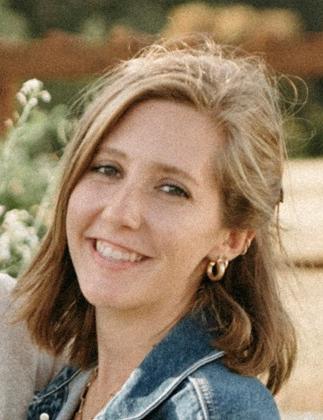
Laura Han Legislative & Policy Analyst
Friends and Colleagues: 2025 Legislative Session is upon us!
Our legislature convenes in the first quarter of each year to write biennial and/or supplemental budgets and write and pass laws.
ALTSA, as an executive branch agency, lends our expertise on long-term care to policy makers, legislators and the Governor as they write new policies that impact our book of business.
For those who participate in our bill analysis process, you are doing incredibly important work that informs strategic policy engagements for the Office of the Assistant Secretary and the Office of the Secretary during the legislative session. The legislative process is not the most straightforward, so if you’re feeling overwhelmed and unsure how to engage, here are some resources to refresh your memory on how the legislative process works!
• SchoolHouse Rock’s How a Bill Becomes a Law (a classic for a reason).
• The Washington State Legislature’s How a Bill Becomes a Law step-by-step guide (not as fun but still good).
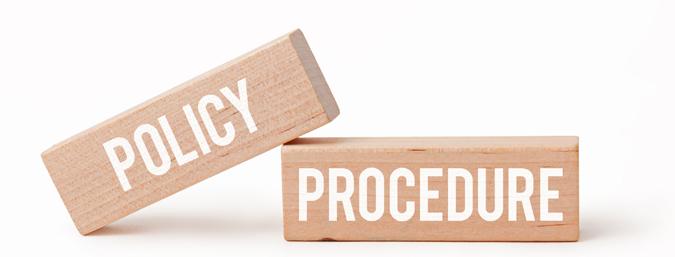
Memo: Upcoming 2025
Legislative Session –Legislative Protocols Refresher

• ALTSA’s Legislative Affairs SharePoint Site, which includes training materials on the legislative process, Lobby Gov (our bill analysis system) and legislative reports.
• Office of Financial Management’s Budget Process Guide.
• ALTSA’s Focal Point Site, where you can access upcoming Legislative Literacy 101 sessions.
In addition to the usual changes and, let’s face it, chaos typical of the legislative session, 2025 will be accompanied by some significant changes in state government. Governor-Elect Bob Ferguson will be sworn into office January 15, 2025, marking the first time in twelve years that someone other than Governor Inslee has led Washington state’s executive branch.
Ferguson will likely start his term by appointing new members of cabinet, adopting his own budget priorities and setting up his executive leadership team. This time of change can feel uncertain, but remember, it’s all a part of the process! If you have questions about the legislative process, please don’t hesitate to reach out!
Staff should not testify or write letters into the legislature on behalf of DSHS or in their official capacity without explicit approval from the Assistant Secretary. Due to state lobbying and ethics laws, if you want to testify or write a letter, you will need to do so on your own time. If you would like to engage on an issue that impacts ALTSA, please coordinate with Laura at laura.han@dshs.wa.gov.
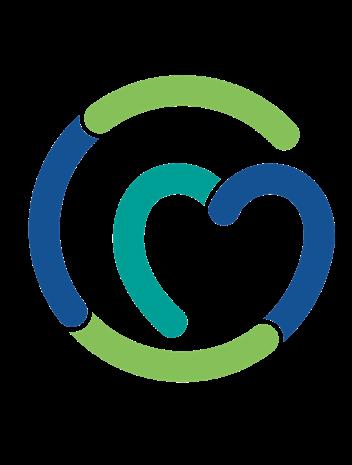
caregivercareerswa.com
Caregiver Careers Washington
Washington State, along with the rest of the nation, is experiencing a caregiver shortage which jeopardizes the ability of older adults and people with disabilities to remain in their own homes and communities. To address the gaps between available workers and increasing demand, it is important to hear directly from caregivers about why they stay and leave the caregiving workforce and to use this information to build strategies for recruitment, retention, and to improve the culture of caregiving.
Under Senate Bill 5187, ALTSA entered into a contract to complete a Caregiver Exit and Stay survey.
In August of 2024, 93,000 targeted emails were sent to current and former caregivers from Consumer Directed Employer and eleven participating home care agencies.
Caregiver groups completed a total of 14,376 surveys. The valuable information these caregivers provided is being compiled into a report that includes information about caregiver demographics, their experiences, key findings and concludes with issues and strategies for improvement.
We invite you to attend the January Workforce Development and Retention Group meeting on January 6, where the results of the survey will be presented. The final report will also be available on the new web page when it launches.
To receive the meeting link, please email Sarah Verhei at sarah.verhei@dshs.wa.gov.
COMPLETED SURVEYS

Every year, the Fostering Well-Being team works with about 2000 kids – a little more than 150 every month – with the goal of improving health outcomes through care coordination services. Staff collaborate with social workers and program management at the Department of Children, Youth, and Families to support the health, behavioral and mental health, educational, and cultural needs of children in foster care.
This kind of teamwork helps provide appropriate health care, behavioral health, educational support, and timely and accessible services so that children don’t experience gaps when they move or when they transition into adult services.

Alexis is a non-verbal, non-mobile client who lived in a medically fragile group home for most of her life. She was about to turn 21 and going to age out of foster care services, and needed to be transitioned to adult services and an adult family home before her birthday.
Not only did Alexis need to move to a home with the appropriate level of care for her complex medical needs, but she also had specialty equipment that had to be coordinated in this move. So, Chani Hayes from the Fostering Well Being team started working with DSHS’ Developmental Disabilities Administration, the Health Care Authority, and the Department of Children, Youth and Families to ensure Alexis was placed in a home with other young adults where she could live independently.
“It’s just a huge coordination effort cross agency with HCA, DCYF and DDA to make that happen,” Hayes said. “Everyone has to sign off and be in agreement.”
One challenging aspect of the transition was finding a vendor that could properly dismantle, transport, and reassemble Alexis’s sand bed at her new home. Just finding someone qualified to deal with the critical piece of equipment took time.

However, all the coordination and hard work paid off, and Alexis was able to move to her new Adult Family Home before her 21st birthday. Hayes says it was rewarding to find a home that could meet Alexis’s medical and personal needs so well, and that everyone involved in her case could agree was a great next step.
“Not only did we get everything put together for her but that she landed in a very beautiful home that was going to be able to take care of all of her needs,” Hayes said. “And the other clients that were in the home were in the same age group, so she was going to just thrive there. So, I was extremely relieved and happy that she was going to be well taken care of.
If you know any of these folks, please take a moment to send them a RAVE review which will be cc’d to their supervisor! Or send them a Teams message to thank them for their service. Either way, peer recognition matters, and is one more way we all contribute to ALTSA being the culture we want it to be and our Employer of Choice!
The Governor’s Outstanding Leadership Award is an annual award that recognizes managers in state government who demonstrate extraordinary leadership through performance results in the previous year.
On September 12, 2024, Gov. Jay Inslee recognized 23 state agency leaders at the annual Governor’s Outstanding Leadership Awards, celebrating accomplishments achieved during the 2023 calendar year.
The program was created in 1985 to honor state government leaders who exemplify leadership. Inslee expanded criteria to highlight continuous improvement, as well as pro-equity and antiracism efforts.
“Recent years brought new challenges to our agencies, and they’ve been met with ambition, innovation, and a commitment to public service from leaders at all levels of each agency.” Inslee said, “I could not be prouder of how state employees have led by example.”
Each year, a group of agency executives review and determine the awardees from a pool of nominees. Honorees represented many state agencies, offices, and commissions.
Those recognized included DSHS Senior Human-Centered Design and Innovation Advisor Dawn Shuford-Pavlich, who was nominated after meeting the following sustained leadership criteria:
Achieving results: nominee cultivates a shared, strategic vision, drives results and makes things happen as a public servant.
Commitment to equity and inclusion: nominee embraces and embeds inclusion in their decision-making while modeling and championing our culture and values.
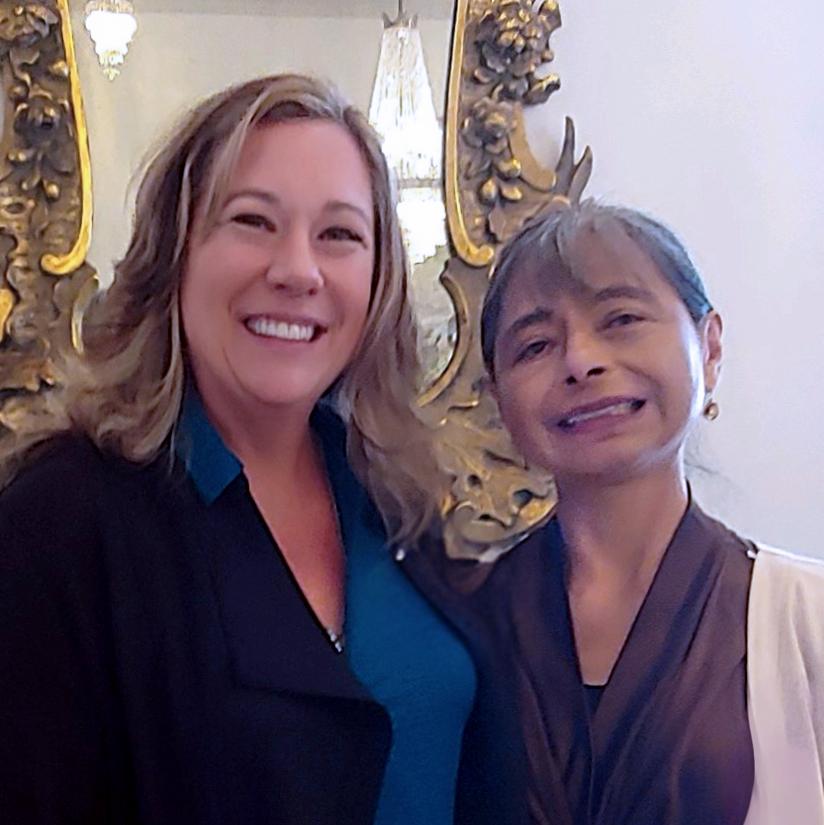
Caring for and developing the people they work with: nominee leads and navigates change, helps people develop, builds relationships and fosters learning. Collaboration and teamwork: nominee fosters teamwork and collaboration and communicates effectively.
Home and Community Services director Cathy Kinnaman said, “Dawn Shuford-Pavlich has driven a culture of equity and inclusion at DSHS through cross-agency community of practice in human-centered design and AI technologies integration. Her leadership has streamlined processes, enhancing service delivery, increasing staff satisfaction, and ensuring responsive policies for vulnerable populations.”
Rachel E. is fabulous - she is so helpful in getting any issue fixed and supports the ongoing education of not only myself but all of the people I support. She is a joy to work with and I am happy to that I get to be on the same team as her.
Victoria G. M.
A BIG SHOUT OUT TO AMY DEPAOLO!
While I was out on leave for over two weeks, she really did a lot with assisting one of my difficult clients by communicating with the interested AFH and social worker. Coming back I saw how much work she put in with a few of my clients and I am just so thankful and wanted to publicly express that! Thank you Amy!!!
Corinne V.O.
I want to express appreciation for Monica Briggs. Monica recently completed her first contract development project and did an outstanding job! The process can be overwhelming, intimidating, and a bit of a slog. She managed everything brilliantly. I was particularly pleased with how she worked with our contractor and subcontractor. She negotiated terms, she developed the SOW, she kept stakeholders informed, and she did everything with a lot of social grace. Thank you, Monica!
Michael S.
A BIG SHOUT OUT TO: Meredith Hibbard. She is not only dependable but will go above and beyond for your client’s. I was out on leave for a little over two weeks and I came back to see how much work she put into getting care for my clients while I was gone. She treated my clients like they were her clients and for that I am very appreciative for!
Thank you so much Mere <3 I’m so glad you work for HCS!
In addition to being an awesome CIESM Manager, Kara is a gifted graphic designer. She designed beautiful graphics for all of the regional APS SharePoint sites and the APS hub site. They are going to look so good!! Thank you for all of your work, Kara!
Kristen S.
Take time to appreciate others by sending them a RAVE Review! Bookmark the link! It’s so easy and can really impact a sense of connection and belonging for both the sender and receiver! Who do you appreciate? Tell them now!
Rebecca, K., Just wanted to thank you for the wonderful collaboration with our APS team on some challenging joint cases. You are so open about meeting, and I truly appreciate your transparency and willingness to work as a team. You are a pleasure to work with!
Paula H.
Thank you so much Darrin for stepping up for your teammate in an time of need and ensuring the safety of two of our most vulnerable. Your commitment and passion for the work you do is remarkable and you are valuable part of the team!!!!
Lauri E.

Please use this EOC Ideas Submission Form to share your ideas for helping DSHS be an employer of choice. Check out the SharePoint site Employer of Choice - Home (sharepoint. com)

Explore this new resource from the DSHS Office of Justice and Civil Rights to learn more about Mediation, Facilitation, Conflict Coaching, and Training.

Check out the Shared Leave site. Did you know you may donate your leave to a coworker in need of leave if you have over 80 hours of Annual Leave, over 176 hours of Sick Leave, and/or Personal Holiday available? Any amount of leave donated would be greatly appreciated. Thanks for your consideration.

Click on the House of Strategic Planning to see the full graphic in PDF format.